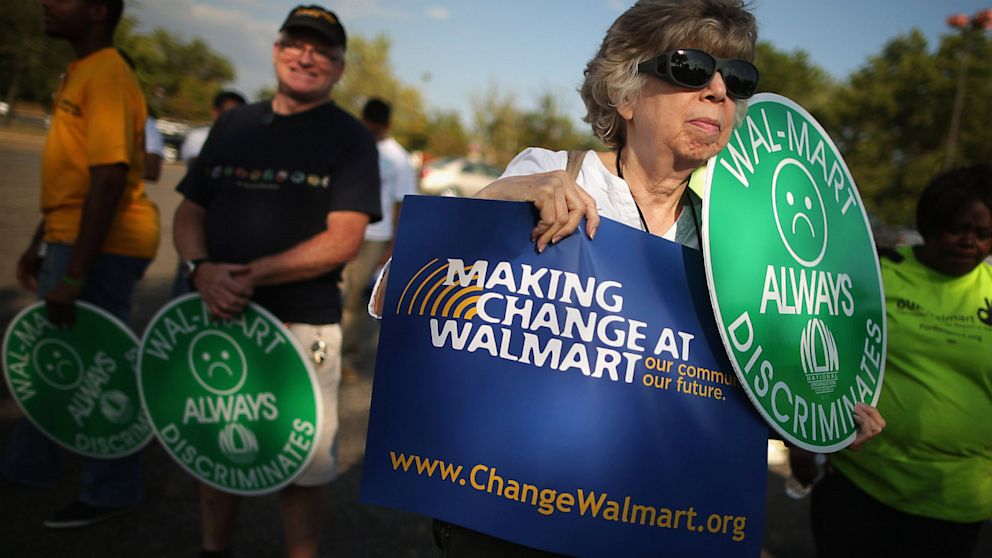Wal-Mart Moves Forward With First D.C. Stores After Mayor Vetoes 'Living Wage'
The D.C. mayor vetoed the city council's Large Retailer Accountability Act.

Sept. 12, 2013 — -- Wal-Mart will move forward with plans for its first stores in the nation's capital after Mayor Vincent Gray vetoed the city council's bill that mandated higher wages for so-called big-box stores.
The nation's largest private employer halted plans for three local stores after the D.C. Council approved a bill on July 10 that would have boosted minimum wages paid by large retailers by nearly $5 an hour.
In a letter to the city council explaining his decision, Gray wrote, "The bill is not a true living-wage bill, because it would raise the minimum wage only for a small fraction of the District's workforce."
Read More: Fast Food Workers Walk Out For Better Pay
He called for a living wage for all district residents.
"The bill is a job-killer, because nearly every large retailer now considering opening a store in the District has indicated that they will not come here or expand here if this bill becomes law," he wrote.
Wal-Mart applauded Gray's long-awaited decision.
"Mayor Gray has chosen jobs, economic development and common sense over special interests – and that's good news for D.C. residents," Steven Restivo, senior director of communications for Wal-Mart, said in a statement. "Now that this discriminatory legislation is behind us, we will move forward on our first stores in our nation's capital."
Restivo said the company looks forward to finishing the work that began almost three years ago: "a plan to bring more jobs, shopping options and fresh food choices to Washington, D.C. residents."
The so-called "living wage" through the council's Large Retailer Accountability Act (LRAA) was criticized by some council members for unfairly targeting Wal-Mart.
The LRAA forced big-box stores like Wal-Mart to pay workers at least $12.50 an hour. The city's minimum wage is $8.25. In the U.S., the average wage for a full-time hourly Wal-Mart associate is $12.57, according to the company. That's about $25,000 a year at 40 hours a week, or just above the federal poverty level of $23,050 for a family of four. But many part-time workers at the company make little more than the minimum wage.
Read More About the Wal-Mart Effect on Home Prices
When Wal-Mart decided to open stores in D.C., announcing in November 2010 the initial stage of its plans, the retailer said it was committed to understanding the communities where it hopes to do business. The company has previously said it has participated in more than 200 community meetings and documented its commitment to "help stimulate economic development, expand access to affordable groceries and create quality jobs in the city."




